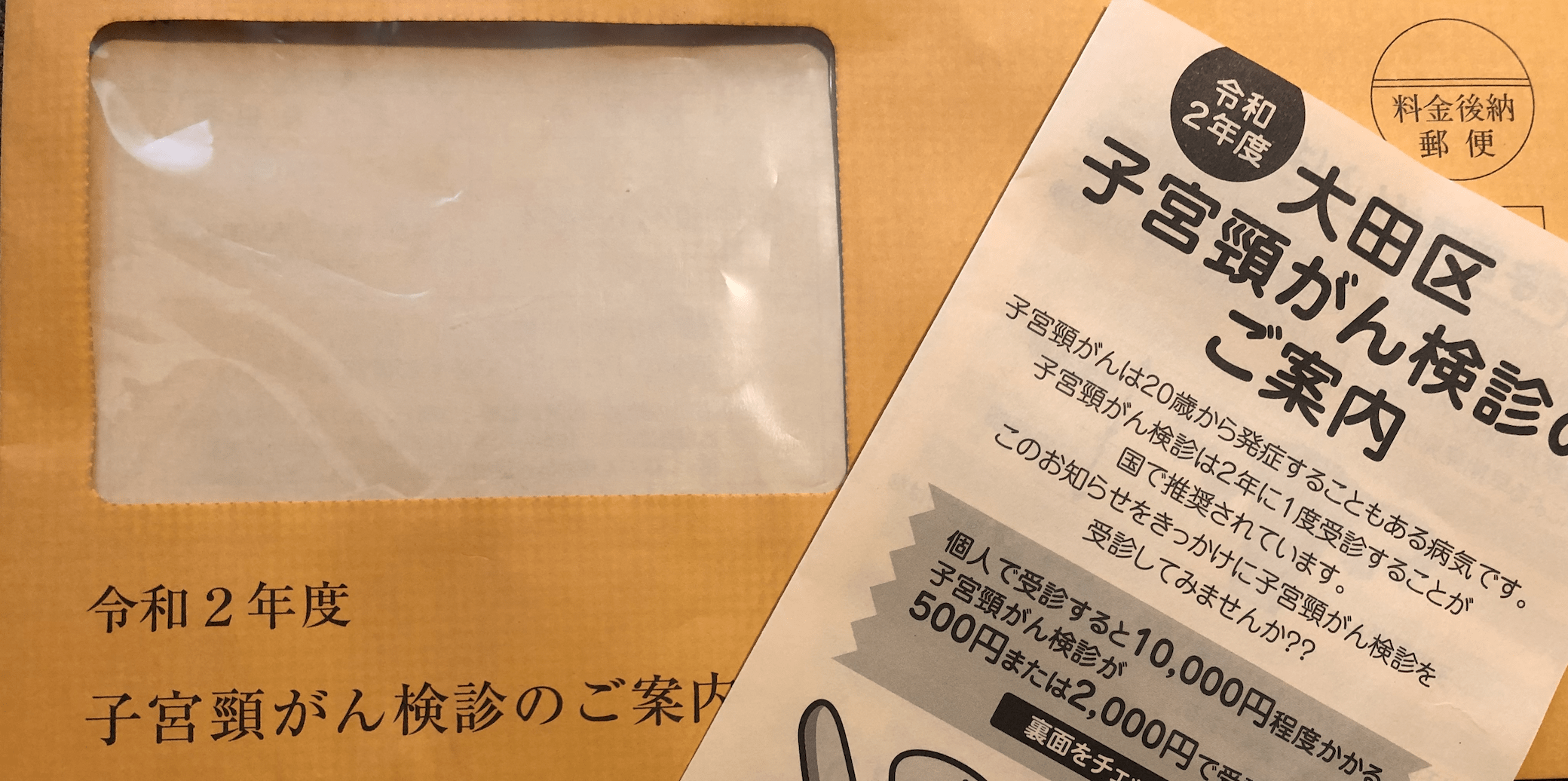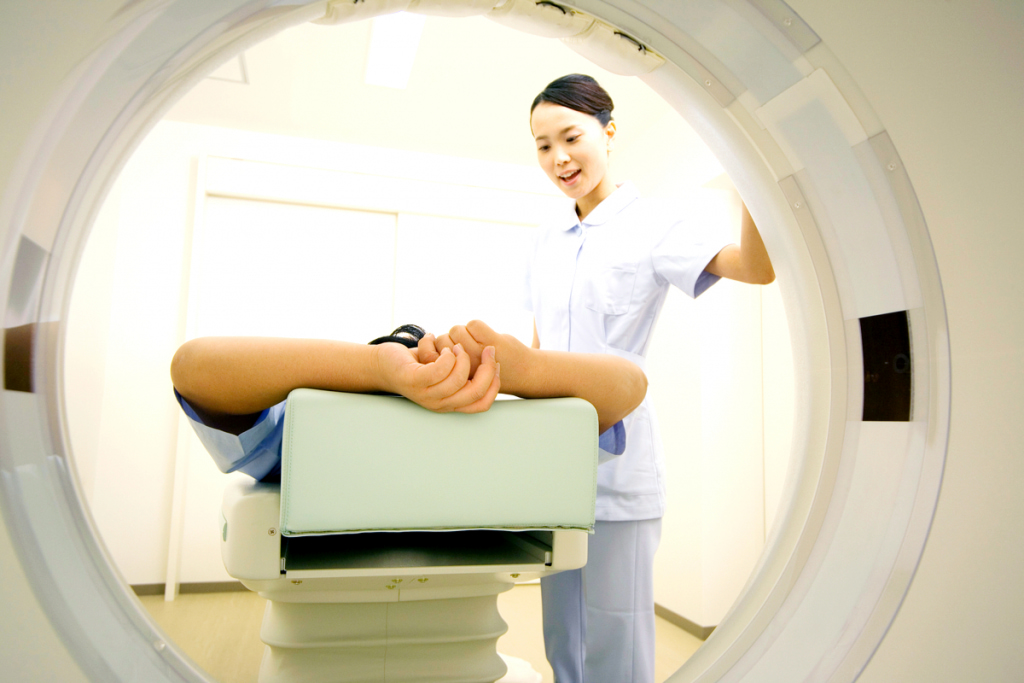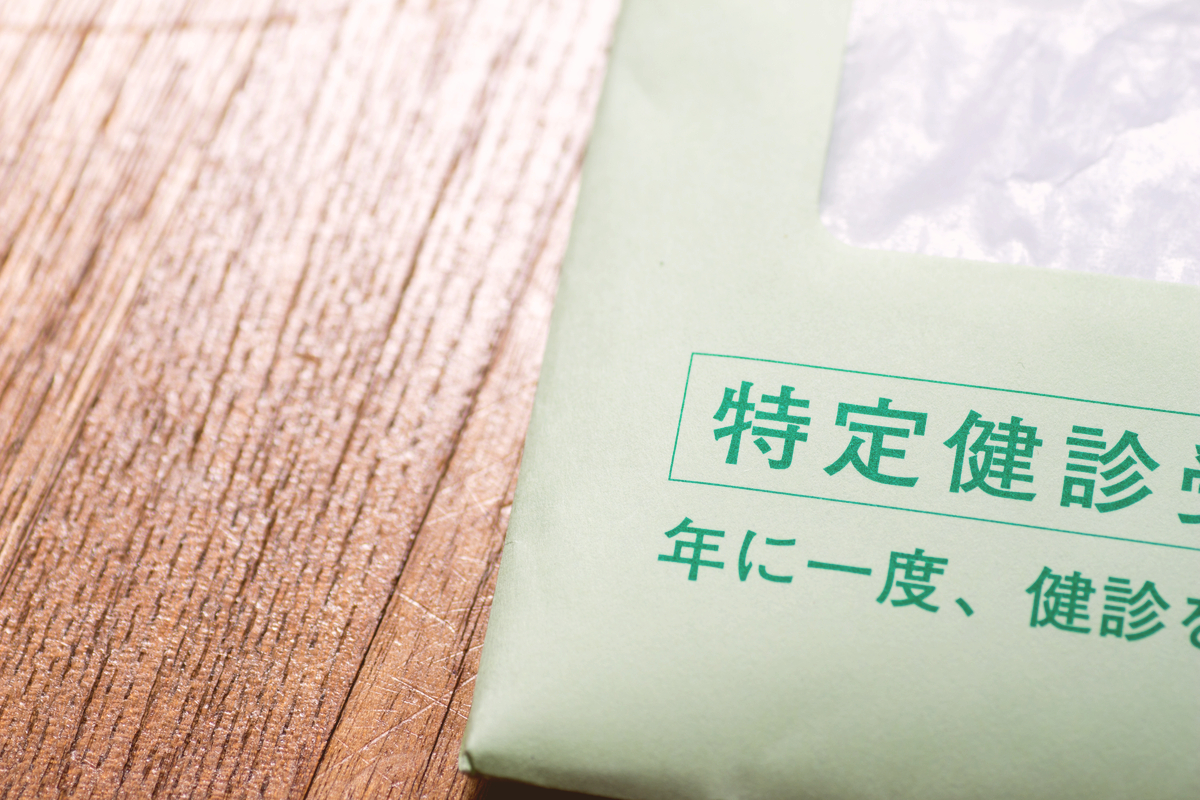The Japanese health insurance, or “kokumin kenko hoken,” is a universal healthcare system. All Japanese citizens and foreign residents living in Japan, whether employed or paying for it individually, must have health insurance — it’s defacto illegal not to. Your annual income determines the monthly payments you’ll be making to the health insurance (those are typically deducted from your salary if you’re employed full-time). In return, patients in Japan typically pay only 30% of the entire procedure cost* and are eligible to receive a once per year regular health checkup. Those annual health checkups are, in most cases, arranged by private companies in full-time employment and privately if one runs their own business or is unemployed. Municipalities also regularly send vouchers for different health checkups to their residents of certain ages.
The following is an overview of Japan’s most common health checkups offered to you as part of the national or employee health insurance you (or your significant other in case of dependency) are paying from your salary every month. Take advantage of this service — there’s nothing like being over-careful when it comes to health.
Kenko Shindan (健康診断)
Full-time company employees are subjected to an annual health check known as the “kenko shindan” (also known as ippan kenko shindan or tokutei kenko shindan). These are typically not available to part-time, temporary or any employee not paying into the company insurance. If you are self-employed or unemployed, you can still arrange a health checkup using the national health insurance, but you will need to arrange it individually by booking a checkup at a hospital that provides the service.
For a standard kenko shindan, your company will typically give you a date and time and the address of the clinic your company has selected. Some companies have their employees attend altogether.
Although the types of tests in each health checkup depends on the company, the basic health check course typically includes a blood pressure check (血圧 ketsuatsu), blood test (血液検査 ketsueki kensa), eye test (視力 shiryoku), hearing test (聴力 choryoku), urine test (尿検査 nyo kensa), a chest x-ray (レントゲン検査 rentogen kensa), height and weight (身長 shincho, 体重 taiju) and a general checkup and a quick chat with a doctor. Those aged 35 and above are also eligible for colonoscopy exams. Extra options, such as mammography and cervical cancer tests, may be included or offered as optional tests. Please confirm with your company in advance. A regular health checkup takes about three hours on average.
If you don’t feel comfortable attending the health checkup with your colleagues or have a clinic of your preference, you can opt to have the testing done by a qualified clinic of your choice. However, the general rule for most companies is that you must undergo the health check no matter what. However, there are some exceptions — such as pregnancies — when you may opt-out of taking the company’s health checkup. In those cases, make sure you inform your employee.
One issue that some have with the kenko shindan is that the results are technically shared with your company as your health report may be included in your HR file. The justification behind this is that if you have an easily communicable disease (tuberculosis, for example), you are at a health risk and cannot continue your employment until given a clean bill of health.
Ningen Dock (人間ドック)
This is the most comprehensive and one of the most invasive medical exams you can have. The ningen dock is a course of a half, one/two/three-day, or one week long medical tests that will have the doctors knowing more about your body than you do by the end. Those that last overnight include stays in individual suites as well. If you are not employed full time, or your company does not provide a kenko shindan for whatever reason, this is one option you may choose.
Given their thorough nature, the ningen dock does not come cheap. Depending on the clinic and the options you select, the ningen dock can run anywhere from ¥20,000 to over ¥500,000. These tests are not covered by the Japanese National Health Insurance but may be covered in part by private insurances. Consult with your provider before booking any appointments as many clinics have cancellation fees.
The standard ningen dock includes everything from the kenko shindan, electrocardiogram, respiratory function test, abdominal ultrasound, upper gastrointestinal colonoscopy, and fecal occult blood test. In the options packages, you can add MRIs, CT/PET scans, full cancer screenings, thyroid screenings, allergy tests, and even tests for sleep apnea.
English speaking clinics for the Ningen Dock: English language providers of the ningen dock are the Tokyo Medical and Surgical Clinic, Tokyo Medical Clinic, St. Luke’s International Hospital, the Japanese Red Cross Medical Center, the Kameda Medical Center, and Gyotoku General Hospital. There’s even a Japan Society of Ningen Dock with an English page and publishes a journal in both English and Japanese annually.
Regional Health Checks
Those who are self-employed or unemployed (or in the case that your company-organized health checkup covers only basic tests) can also get health checks for various conditions, or an overall kenko shindan style checkup provided by their ward/region. Simply take a look at your ward’s homepage, and they should have a list of health checks/screenings available. The most common screenings available are for cancer (がん検診 gan kenshin) of the stomach, lung, large intestine, and breast and uterine and cervical cancers (胃がん igan, 肺がん hai gan, 大腸がん daicho gan, 乳がん nyu gan, 子宮がん shikyu gan or 子宮頸がん shikyu kei gan).

A ¥500 (or ¥2,000) cervical cancer voucher from Ota city, Tokyo.
Municipalities will also send out vouchers for some tests to residents of certain age groups considered to be at a higher risk of a specific illness. Those vouchers also come with information on where and when you can take those tests. As you go to one of the clinics they recommend, these tests may be entirely free or offered at a highly discounted rate (if you bring the printable coupon/email code required). In some areas, you can have a full kenko shindan checkup for free, plus comprehensive cancer screenings for as little as ¥1,000 per test.
Understanding Your Health Check Report
As reports of the regular health checkups are mainly written in Japanese, you may need help to read your results. Generally speaking, most clinics run on a letter grade system that, in most cases, goes as follows:
A: Ijo nashi 異常なし — No abnormalities
B: Shinpai nashi 心配なし — Nothing to worry about at present, or merely a deviation from normal that is not detrimental to your health.
C: You/keika kansatsu (要)経過観察 — Observe condition’s progress. There is a slight problem, but it’s not serious now and if you make the necessary changes, it is easily treated.
D/D1: You jushin or you chiryo 要受診, 要治療 — Medical consultation/treatment required. It would help if you saw a specialist on your own time to discuss this result. The clinic may be able to make the arrangements for you.
E/D2: You seimitsu kensa 要精密検査 — An immediate medical exam required. See a specialist as soon as possible as the area in question requires immediate attention. This is often the case in early cancer discoveries, surprise pregnancies, untreated diabetes, cardiac conditions, and other “hidden” illnesses.
F: Chiryochu 治療中 — Under ongoing treatment. The doctors are aware you have a given condition and that you are taking care of it.
Other common language you may see on your report include the following:
- 今以上、太らない様、気をつけてください (ima ijou futoranai yo, kiotsukete kudasai) Be careful not to gain more weight.
- 積極的に運動を行う様、努めて下さい (sekkyokuteki ni undou o okonau yo, tsutomete kudasai) Exercising actively.
- 今回の健康診断においてわずかに所見を認めますが、現在特に心配ありません (konkai no kenkoushindan ni oite wazuka ni shoken wo mitomemasu ga, genzai tokuni shinpai arimasen) While slight abnormalities were detected this time, there is no need to worry about your condition as of present.
- 今回の検診では異常を認めませんでした (konkai no kenshin de wa ijou wo mitomemasendeshita.) No health issues were detected in this health check.
Keeping on top of your health should always be your top priority, so use the benefits of what you’re paying for and undergo a health checkup at least once a year.
*Treatments perceived as not health-endangering or unnecessary for one’s vitality and/or health, such as teeth whitening, LASIK, plastic surgery for beauty purposes, ceramic filling for dental treatments and others, are not covered by the national insurance. Pregnancy tests and giving birth are also not covered by health insurance unless specific complications have occurred.
**Please note that, during the coronavirus and its related restrictions, some clinics limit their health check services. If you have an immediate medical concern, emergency services are still functioning as usual, but medically unnecessary services may not be available.
Do you have a question related to the Japanese national insurance or health checkups? Reach out to us at [email protected]










